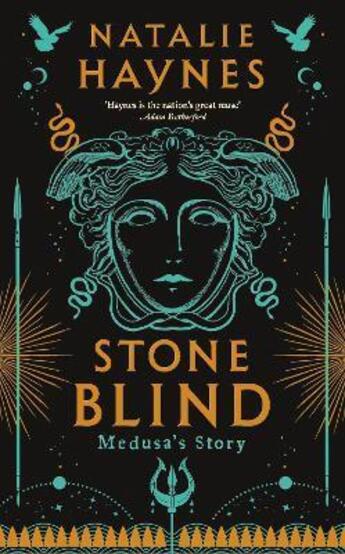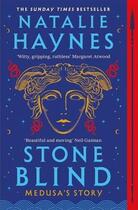-
Date de parution : 15/09/2022
-
Editeur :
Mantle
-
EAN : 9781529061475
-
Série :
(-)
-
Support :
Papier
Résumé:
Natalie Haynes - the Women''s Prize-shortlisted author of A Thousand Ships - brings the infamous Medusa to life as you have never seen her before . . .
''So to mortal men, we are monsters. Because of our teeth, our flight, our strength. They fear us, so they call us monsters.'' Medusa is the... Voir plus
Natalie Haynes - the Women''s Prize-shortlisted author of A Thousand Ships - brings the infamous Medusa to life as you have never seen her before . . .
''So to mortal men, we are monsters. Because of our teeth, our flight, our strength. They fear us, so they call us monsters.'' Medusa is the only mortal in a family of gods. Growing up with her sisters, she quickly realizes that she is the only one who gets older, experiences change, feels weakness. Her mortal lifespan gives her an urgency that her family will never know.
When, in Athene''s temple, desire pushes Poseidon to commit the unforgivable, Medusa''s mortal life is changed forever. Athene, furious at the sacrilege committed, directs her revenge on Medusa. The punishment is that she is turned into a Gorgon: sharp teeth, snakes for hair, and a gaze that will turn any living creature to stone. Appalled by her own reflection, Medusa can no longer look upon anything she loves without destroying it. She condemns herself to a life of solitude in the shadows to limit her murderous range.
That is, until Perseus embarks upon a fateful quest to fetch the head of a Gorgon . . .
This is the story of how a young woman became a monster. And how she was never really a monster at all.
PRAISE FOR NATALIE HAYNES:
''With her trademark passion, wit, and fierce feminism... her thoughtful portraits will linger with you long after the book is finished'' Madeline Miller ''Haynes combines a wide-ranging knowledge of the original myths with a gift for compelling narrative'' The Times ''Natalie Haynes is both a witty and an erudite guide. She wears her extensive learning lightly and deftly drags the Classics into the modern world'' Kate Atkinson ''Haynes is master of her trade . . . She succeeds in breathing warm life into some of our oldest stories'' Telegraph ''Haynes is the nation''s greatest muse'' Adam Rutherford
Donner votre avis
















